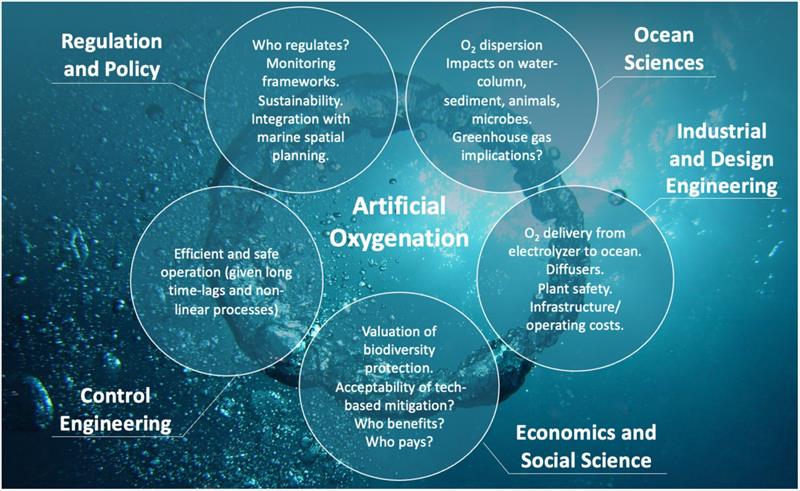
Lhyfe publishes a scientific article to alert to the need to reoxygenate the oceans
by Lhyfe 22 Mar 2024 13:54 UTC

Lhyfe publishes a scientific article to alert to the need to reoxygenate the oceans © Handmann and Wallace, 2024
Lhyfe publishes a scientific article to alert the scientific, institutional and industrial spheres to the need to reoxygenate the oceans: "The global energy transition offers new options for mitigation of coastal hypoxia: do we know enough?
- With potential implications like the loss of marine biodiversity, the transformation of biogeochemical and microbial processes and impacts on millions of jobs related to coastal waters and on the protein supply of over 3 billion people, the loss of oxygen in the oceans should ring alarm bells, especially as solutions are beginning to emerge.
- Through the publication of a scientific article, Dr. Patricia Handmann invites the three communities concerned to coordinate their efforts to speed up research and implement solutions.
Lhyfe (EURONEXT: LHYFE), one of the world's pioneers in the production of green and renewable hydrogen, announces that its article "The global energy transition offers new options for mitigation of coastal hypoxia: Do we know enough?" was published in the scientific publication Global Change Biology (Wiley).
Lhyfe is a producer and supplier of green and renewable hydrogen. While the company's first sites are on land, its aim is to ultimately produce hydrogen at sea, by electrolysis of water, producing large quantities of oxygen as a by-product[1]. From the very start, Lhyfe has wanted to use this oxygen to benefit the oceans. That's why, four years ago, the company began research into ocean reoxygenation.
As well as working on projects being implemented with Lhyfe's partners, such as the BOxHy project currently under way in the Baltic Sea, Dr. Patricia Handmann, Oxygen Advisor at Lhyfe, is working to bring light to this key issue for the oceans and to encourage stakeholders to coordinate their efforts.
This article, consolidating a series of articles published around the world between 2006 and 2023, aims to raise awareness of the importance of the subject among scientific, institutional and industrial players, and to bring them together in a joint effort, since each holds part of the solution.
Patricia Handmann received support for the writing of this article from Douglas Wallace, Dalhousie University.
DOI: OK 0.1111/10 gcb.17228